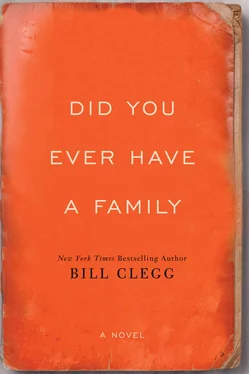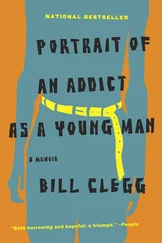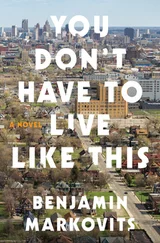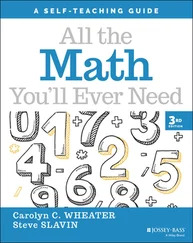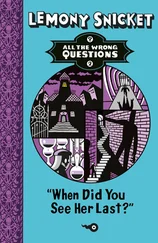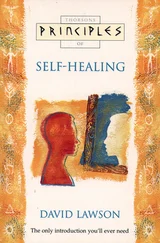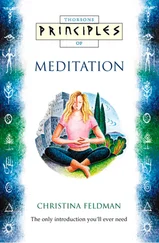That she has her cash card and car keys with her is luck — they had been in the jacket pockets — but she does not think of herself as lucky. No one does. Still, these stowaways from her old life allow her now to leave town, which is all she wants. It isn’t restlessness, or a desire to be somewhere else, but a blunt recognition that her time in this place has expired. Okay, she exhales, as if ceding a long, winless argument. She looks out the kitchen window at the orange and red daylilies blooming behind this house that is not hers. She presses her hands against the rim of the sink, and in the basement the dryer she’d filled over an hour ago with wet sheets signals its duty done with one long, harsh bleat. The porcelain feels cool under her palms. The house without sound is now loud with nothing, no one. A molten ache returns, turns in her chest, scrapes slowly. Outside, the daylilies flail in the morning wind.
She has not cried. Not that day, not at the funerals, not after. She has said little, has had few words when she needs them, so she finds herself only able to nod, shake her head, and wave the concerned and curious away as she would marauding gnats. The fire chief and police officer answered questions more than asked them — the old stove, gas leaking through the night and filling, like liquid, the first floor of the house, a spark most likely from an electric switch or a lighter, though none had been found, the explosion, the instant and all-consuming fire. They did not ask her why she was the only one outside the house at five forty-five in the morning. But when the officer asked if her boyfriend, Luke, had any reason to want to harm her or her family, she stood and walked out of the church hall, where a makeshift crisis center had been created. This is the church where her daughter, Lolly, would have been married that day; across the road and a short walk from the house. Guests had shown up before one o’clock expecting a wedding and found instead a parking lot filled with police sedans, ambulances, fire trucks, and news vans. She remembers walking out of the church toward her friend Liz, who was waiting in her car. She remembers how talk stopped and people shuffled and half stepped out of her way. She heard her name called out — timidly, unsure — but she did not stop or turn around to respond. She was, she sensed sharply as she reached the far side of the parking lot, an untouchable. Not from scorn or fear, but from the obscenity of the loss. It was inconsolable, and the daunting completeness of it — everyone, gone — silenced even those most used to calamity. She could feel all eyes on her as she opened the car door to get in. She remembers seeing in her peripheral vision a woman coming toward her, holding up her hand. Seated, she could see clearly through the car window Luke’s mother, Lydia — busty, bright-bloused, long brown hair piled loosely on her head. This was the second time she’d seen her that day, and as before, despite a powerful urge to go to her, there was no way she could face the woman. Go was all she could say to Liz, who sat in the driver’s seat spellbound and mute like everyone else in the parking lot.
The police never questioned her again about what happened that night and the following morning. Friends stopped asking her the same safe questions — was she okay, did she need anything — when she didn’t respond. A thin smile, a blank stare, and turning her head away discouraged even the most persistent. A morning news anchor was especially pushy . People want to know how you’re surviving, this woman, who had been on television since the seventies but had not one crease or line on her face, said to her in front of the funeral home. No one survived, she said in response, and then, quietly, Stop, which the woman did. Eventually, everyone who had been in town for Lolly’s wedding left, the questions ended, and she was, at the age of fifty-two and for the first time in her life, alone. Through that first week and after, she refused to wail or fall apart or in any way begin a process that would bring her closer to rejoining the new and now empty world, or, as someone urged in a well-meaning but unsigned note that accompanied one of the hundreds of funeral arrangements, to begin again.
She buttons her jacket and starts to close and lock the windows of the small cottage loaned to her by a painter she once represented. For as long as you need, Maxine said that day over Liz’s cell phone, the place is yours . Maxine was in Minneapolis, where she’d been when everything happened. How she found out so fast and knew what was needed, June still did not know. Some people, she decided, magically surface in these horrible moments knowing exactly what to do, which spaces to fill. The cottage was on the other side of Wells, the same small town in Litchfield County, Connecticut, where her house had been, where she’d come on weekends for nineteen years and had been living full-time for the last three. Maxine’s dusty, little place is far away and unfamiliar enough for these weeks to be bearable. That anything could be bearable was a shameful minute-to-minute revelation. How am I here? Why? She allows these questions, but she keeps others from herself. It is safer to ask the ones she doesn’t have the answers to.
She has refused to be admitted to the town hospital or to take any of the sedatives or mood stabilizers the few people around her have urged her to let them have a doctor prescribe. There is nothing to stabilize, she thinks. Nothing to be stable for. In the cottage she has slept past noon each day and after waking moved from bed to chair to kitchen table to couch and eventually back to bed again. She has occupied space, tolerated each minute until the next one arrived, and then the next.
She switches off the kitchen light, locks the front door, and places the key under the geranium pot plopped haphazardly toward the edge of the stoop. She walks from the house to her car reluctantly, recognizing that these steps are likely the last she will take in what remains of her life here. She listens for birds and, as she does, wonders what she expects to hear. Farewells? Curses? The birds see everything, she thinks, and for now they are silent. Under the high canopy of black-locust trees that stretch between the cottage and the driveway where her car is parked, there is little sound save for the faint buzz of fading cicadas, who had weeks ago emerged from their seventeen-year slumber to mate, fill the world with their electric hum, and die. Their sudden appearance had seemed like a beautiful omen the week before Lolly’s wedding when the slow early-summer news cycle seemed to talk about little else. Their last gasp now seems as fitting as their arrival was then.
June rushes the last steps and yanks the driver’s-side door open before slamming it shut behind her. She fiddles with the keys, unable at first to find the right one. She eyes the four on the ring as if each has betrayed her: one for the Subaru, one for the front door of her house, one for Luke’s truck, and an old one she still had from her last rental in the city. She wrestles all but the Subaru key off the ring and drops them in the cup holder next to her seat. She turns the key in the ignition, and as the machine rumbles to life beneath and around her, she recognizes again that she is awake and in the world, not stumbling through some outlandish nightmare. This is the world, she says to herself with grim wonder, touching the steering wheel dully with her fingers.
She backs the black Subaru out of the driveway, shifts from reverse to drive, and inches slowly along the narrow dirt road until she pulls onto Route 4. She fills the gas tank at a full-service station in Cornwall and drives until merging south onto Route 7, with its swoops and curves and steep, grassy banks. On an empty stretch of road she fishes the three keys from the cup holder, opens the passenger-seat window, and in one swift motion tosses them from the car. She closes the window, presses her foot harder on the gas pedal, and speeds past two spotted fawns, stumbling several yards from their mother. For as long as she’s been driving between Connecticut and Manhattan, dozens of deer have grazed alongside this stretch of road, oblivious to the speeding cars a few feet away. How many times had one darted into traffic, she thinks, imagining all the close calls — the ones she’s had and the countless others everyone who’s driven this road has survived, thanking God and exhaling as they sped safely away. She thinks of the unlucky souls who didn’t speed away and the staggering catastrophes these stupid and beautiful creatures must have caused. She accelerates, pushing past the speed limit… 52, 58, 66… and as the wagon shudders, she considers how many people have actually died here, their bodies dragged from twisted metal, charred into objects no longer resembling human beings. Her palms get damp against the steering wheel, and she wipes each one on her jeans. Her light jacket feels tight and constricting, but she does not want to stop the car to take it off. She passes another grouping of deer — a doe and a young buck with their spindle-legged fawn — and as she does, she imagines the wreckage: shattered glass, smoking tires, survivors identifying bodies. Her breathing is quick and shallow and she broils inside her clothes. South of Kent village she comes upon an open stretch of road, fields of summer corn fanning out in tight rows from either side. The wagon approaches 70 and the windows rattle in their wells. She imagines, with more detail than she wishes she were capable of, a sea of yellow crime scene tape, police-car and fire-engine lights, the spark and smoke of road flares, ambulances lined up with EMTs standing by, useless.
Читать дальше
